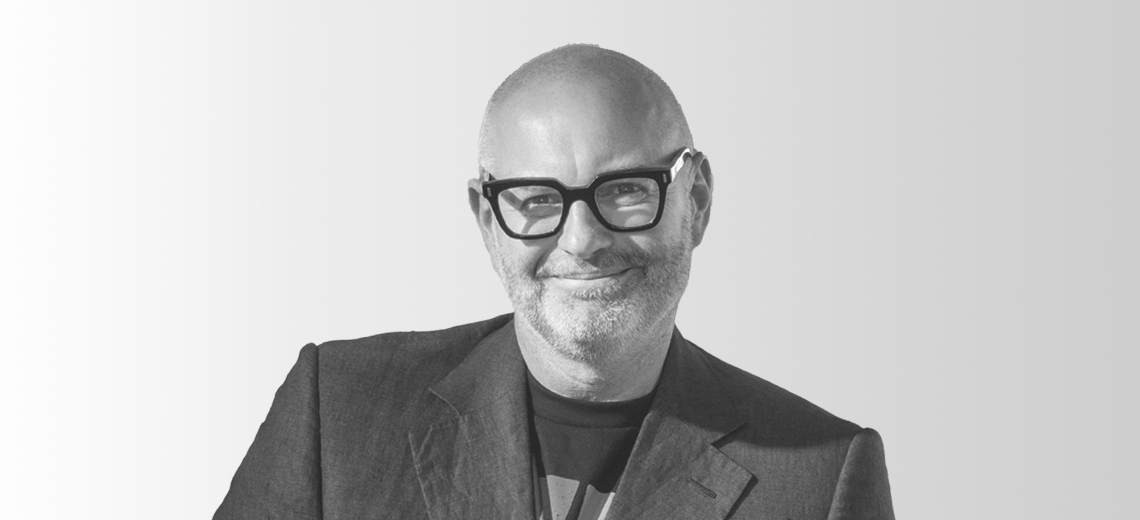Subscribe: Apple Podcasts • Spotify
After 20 years at the helm of 60-year-old British footwear brand Kurt Geiger, Neil Clifford is more than halfway to leading the company to a record sales year.
Kurt Geiger has already made big, impactful changes. For example, five years ago, Clifford hired Michael Kors alum Steven Sousa to lead Kurt Geiger’s North American expansion; the market now drives bigger sales for the brand than the U.K. The company has also expanded to other international markets, with its Dubai-based store quickly becoming its most successful, in terms of its sales per square foot. Kurt Geiger has 70 stores in the U.K.
In addition to stores, the company has upped its investment in marketing, doubling its dedicated budget in each of the past two years. The focus of the strategy is creating compelling imagery.
“It’s very British [to be] much better at creativity and fun and joy than making money and [developing] business strategies,” Clifford said on the latest episode of the Glossy Podcast. “But look at how many brands around the world have British creative directors. That’s not a coincidence.”
Moving forward, thanks in part to a new round of funding, more stores are on the way. Kurt Geiger will open a new London flagship in mid-September. The brand then plans to launch 20-30 stores in North America over five years, starting in October. After three locations in Mexico, it will set up shop in Florida, Southern California and New York early next year.
And in November, it will expand focus to its men’s business with plans for a big, product-focused campaign.
Ad position: web_incontent_pos1
“We focus on design. We spend hours every day talking about product and … great value,” Clifford said. “And we hope that formula transpires into something super desirable and super differentiating and disrupting — because we as Brits like to disrupt; anarchy is in our blood.”
Below are additional highlights from the discussion, which have been lightly edited for clarity.
A runaway bag business
“We are now 55% handbags, as a company. Handbags have been an ‘overnight success,’ but it’s taken us 10 years. But now, we sell [more] handbags than we do shoes. For 53 years, the company was a shoe company — and we’re very proud of that. We love shoes. But with handbags, we’ve found a wonderful vibe in price and design that has been a true, mind-boggling success. We’re three years ahead of where we thought we were going to be [at this point]. … In terms of [its ability to expand], our brand — which is all about color and joyful, energetic, maximalist creativity — has an elasticity to it that is boundless.”
Growing the brand’s US presence
Ad position: web_incontent_pos2
“We have a lot of shop-in-shops now in North America, with Nordstrom, Bloomingdale’s and Dillard’s. We’re in 400 [retail] locations across North America. We love stores. Don’t think that we ignore digital — 30% of our sales are in digital — but we love stores. We love department stores. There’s nothing better than presenting your brand physically to your consumers’ eyes and delivering wonderful service. … Without our three [retail] partners, we would be nowhere. So we are so thankful for their help and support. And actually, they say to us, ‘It would be really wonderful if you also had some amazing physical locations in North America — just to present your brand in a big way.’ Because our success has been around our product design and our pricing — not really in our brand awareness. As for brand awareness, we look at the little Google graph every week, and it’s going up in the right direction, but it’s nowhere near where it should be.”
The perks of private equity
“We became independent on July 4, 2005. The company was actually … part of the Harrods Group. But we became independent, supported by private equity — Barclays Private Equity. … I’d say one thing about private equity: We adore it. Because being surrounded by smart people is really, really helpful. It’s underrated. Cinven, for example, our current owners, have been immensely supportive through quite difficult times in the pandemic. The U.K. had the terrible, long lockdown where retail stores were closed for almost 270 days. And [Cinven] gave us confidence [by saying], ‘It’s going to be OK. If you need money, don’t worry; we’ll give you money. Don’t waste a good crisis. Do all the things you’ve wanted to do.’ [That included] closing poor distribution; changing the promotional stance, to some degree; reinventing our physical locations and our store design; cutting back areas that were not needed, … So, it’s hard to admit, really, because the pandemic was so difficult. But the company’s in a much better place because of the pandemic. And I wouldn’t want to repeat it, of course. But I’m not so sure, we would have done all the things that we did without Cinven’s support. So we adore private equity. It’s a place where you’re learning every day and you’re surrounded by clever people.”


